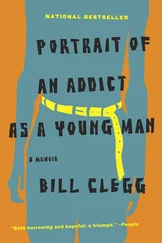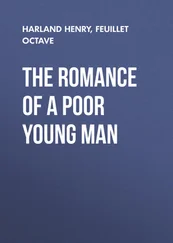Edmund White - Our Young Man
Здесь есть возможность читать онлайн «Edmund White - Our Young Man» весь текст электронной книги совершенно бесплатно (целиком полную версию без сокращений). В некоторых случаях можно слушать аудио, скачать через торрент в формате fb2 и присутствует краткое содержание. Год выпуска: 2016, Издательство: Bloomsbury USA, Жанр: Современная проза, на английском языке. Описание произведения, (предисловие) а так же отзывы посетителей доступны на портале библиотеки ЛибКат.
- Название:Our Young Man
- Автор:
- Издательство:Bloomsbury USA
- Жанр:
- Год:2016
- ISBN:нет данных
- Рейтинг книги:3 / 5. Голосов: 1
-
Избранное:Добавить в избранное
- Отзывы:
-
Ваша оценка:
- 60
- 1
- 2
- 3
- 4
- 5
Our Young Man: краткое содержание, описание и аннотация
Предлагаем к чтению аннотацию, описание, краткое содержание или предисловие (зависит от того, что написал сам автор книги «Our Young Man»). Если вы не нашли необходимую информацию о книге — напишите в комментариях, мы постараемся отыскать её.
Vogue
Our Young Man — читать онлайн бесплатно полную книгу (весь текст) целиком
Ниже представлен текст книги, разбитый по страницам. Система сохранения места последней прочитанной страницы, позволяет с удобством читать онлайн бесплатно книгу «Our Young Man», без необходимости каждый раз заново искать на чём Вы остановились. Поставьте закладку, и сможете в любой момент перейти на страницу, на которой закончили чтение.
Интервал:
Закладка:
He was glad, a moment later, that he hadn’t asked her if she was relieved, because he realized she was already rescripting the past. “We had our differences sometimes,” she said, “but he was a good man who was kind to me and very proud of you kids.” Guy couldn’t believe his ears — their father was a bitter drunk when he wasn’t violent, and the only people he was pleasant with were his bar buddies, the other unemployed drunks of Clermont-Ferrand. Guy remembered distinctly that his mother had said to him maybe ten years ago (he was already in New York) that her husband drove her wild and that she’d kill herself if it wasn’t against her faith. Divorce was even more unthinkable. Guy was cursed with a nearly geological memory in which each time stratum was clearly demarcated from every other and in which memories never blended, and they could always be located with precision. The levels of the past did not bleed into each other in Guy’s mind, nor was the past “color-corrected” to match the present hue. Everything retained its original shade and he could never revise the cruel, barren past to substantiate some sentimental new evaluation. He’d hated and feared his father then and hated him now. His father had seldom talked at home except to mutter something sour and brief, but Guy had heard him at the bar expatiate on his political theories and racist prejudices and anti-German jingoism when he’d gone to collect him late at night at the bar. His father was also obsessed by Arabs. No one was paying much attention to him, but there he was haranguing the void, denouncing the beurs (Arabs born in France) and the Bosches (Huns). (Had he inherited his Germanophobia from his father, who’d fought them in the Great War and had had his eyelids burned off, or did he resent them because their industry was still thriving — or was it just a conventional prejudice, an indication that he was a thinking man and had opinions?) Guy was tall but frail and as he supported his thick, smelly father through the dark, empty streets he longed to slip out from under him so that the hateful man would fall and crack his angry, mumbling skull and die. If they encountered anyone in the streets, especially a brown skinned, big-nosed Arab or a stranger who could be mistaken for an Arab, Guy dreaded the filth that might pour forth from his father’s mouth. When they got home his mother would cluck angrily, “ Oh là là , what’s this?” and hold her needles and half-finished knitting and say, “If you think I’m going to share a bed with — that — heave him onto the couch.” But by then his father was already snoring and Robert was coaxing his slumped body up the stairs to the bed in the spare room.
Now, on the phone as their mother said sad affectionate things, Guy assumed an impenetrable silence. How could people lie to themselves like that? he wondered.
And then he thought, What should she do? Admit that that man ruined her life? Was that what Guy expected or wanted: that his mother should admit that she’d lived a ruined life?
And what was so great about his own life? He had to remember the names of three hundred people in the business whom he’d greet with a smile, he could never go outside with baggy jeans and a dirty T-shirt, he had to listen to hours and hours — centuries! — of talk about clothes and photographers. “Yes, he sleeps in the same bed with her every night, but why?” someone might say of a photograph. “Does he ever touch her, or is it just a New York marriage?” He had to listen to everyone’s gossip and schedule, where they’d been and where they were going, how their astrologers warned against this or counseled that. And then the daily facials (hoping the creams and astringents wouldn’t produce pimples), and the absolute trauma of changing a hairstyle. (Was it ahead of the curve or behind it?) He wondered what his real hair color was. And then the hours and hours of chanting — should he have been chanting for his father’s recovery? he wondered guiltily. What should he buy as a gift for Lucie? He’d seen an expensive blue lizard-skin wallet at Céline’s — you wouldn’t find that in New York, would you?
And what did his life add up to? A portfolio of pictures that was almost instantly démodé, a “beautiful” face with a “masculine” expression and stubble. He was living his life between quotation marks, every inverted comma a proof of inauthenticity — linking his looks to the fleeting moment. When people by accident looked back at his portfolio in fifty years would they say he looked “so eighties,” just as he responded to pictures of Valentino by saying he looked so “twenties,” with his blackened eyebrows, his nostrils black as raisins, his hair shellacked, and his mouth unsmiling. People paid Guy a lot, advertising men projected onto him their own fantasies of “youth,” “innocence,” “sophistication,” or “depth,” but at the end of the day he’d have just a sheaf of glossies and a bitter lined face like a half lemon that had sat in the fridge too many weeks.
It was nice not to have to talk to Fred every day, who assumed he was with his parents. It was nice to lie in Andrés’s arms; the poor boy had been trained to just brush Guy’s lips with his lips, never to gnaw them. Now Guy had to teach him to wash his hands and not to sniff them at dinner or at a movie, fingers that had been knuckle-deep inside Guy, though it was a sweet failing. Guy felt that if he didn’t watch out, Andrés would devour him. Andrés resented the waiter who delivered their breakfast. He would sigh, even moan, if the man took too long. Guy had to purchase Andrés new underthings and shirts and a hooded green rain slicker, un ciré , because the boy had bought his first-class plane ticket at the last minute. Did he have any money? Was his family rich?
Andrés never answered Guy’s questions about money but just looked away and smiled mysteriously.
Guy had never felt so loved. Perhaps because Andrés was so handsome, perhaps because men and women stared at him as often as they stared at Guy, Guy felt Andrés was valuable, enviable, rich with options. Poor Édouard and Fred, they were desperate because time was running out on them. In the apartment of the Buddhas, Guy had seen a photo from the 1950s of Fred in which he was presentable, but he’d never been a beauty, though absurdly he aspired to be one now.
Andrés was intelligent, too, and could talk about Dalí for hours and hours and the surrealists in general. Apparently Dalí was on his last legs now, with a nose tube feeding him oxygen, all mixed up with his trademark wax mustaches. Dalí was Catalan. (They spoke a kind of Catalan as far south as Valencia, Andrés explained, and as far north as Perpingnan.)
“I guess it’s like Gaelic in Ireland,” Guy said, just to be pleasant. He liked seeing Andrés getting worked up, his skin flushing red. Usually he was like the dead Christ in his loincloth being lowered from the cross into his mother’s arms, and Guy enjoyed draping a sheet over his loins to underline the resemblance. He could imagine blood-black nail holes in his body.
Andrés would lie on his stomach practicing Dalí’s signature for hours. His buttocks would always tense when he felt Guy was looking at him.
“Why Dalí?” Pierre-Georges asked over the phone. “He was a complete fraud and would even sign blank sheets of paper for sixty dollars a pop. His greedy wife Gala would put them in front of him; he was completely gaga and she thought she at least would live forever.”
“How do you know all this?” Guy asked.
“There was an article in Marie Claire . But he’s a complete fraud. When he was shown some lithographs of Don Quixote he declared them fakes. ‘How can you tell?’ someone asked. ‘They’re fakes because Dalí hasn’t been paid for them.’ Most of his so-called lithographs are just posters of photographic copies, he doesn’t even know how to make lithographs.”
Читать дальшеИнтервал:
Закладка:
Похожие книги на «Our Young Man»
Представляем Вашему вниманию похожие книги на «Our Young Man» списком для выбора. Мы отобрали схожую по названию и смыслу литературу в надежде предоставить читателям больше вариантов отыскать новые, интересные, ещё непрочитанные произведения.
Обсуждение, отзывы о книге «Our Young Man» и просто собственные мнения читателей. Оставьте ваши комментарии, напишите, что Вы думаете о произведении, его смысле или главных героях. Укажите что конкретно понравилось, а что нет, и почему Вы так считаете.












